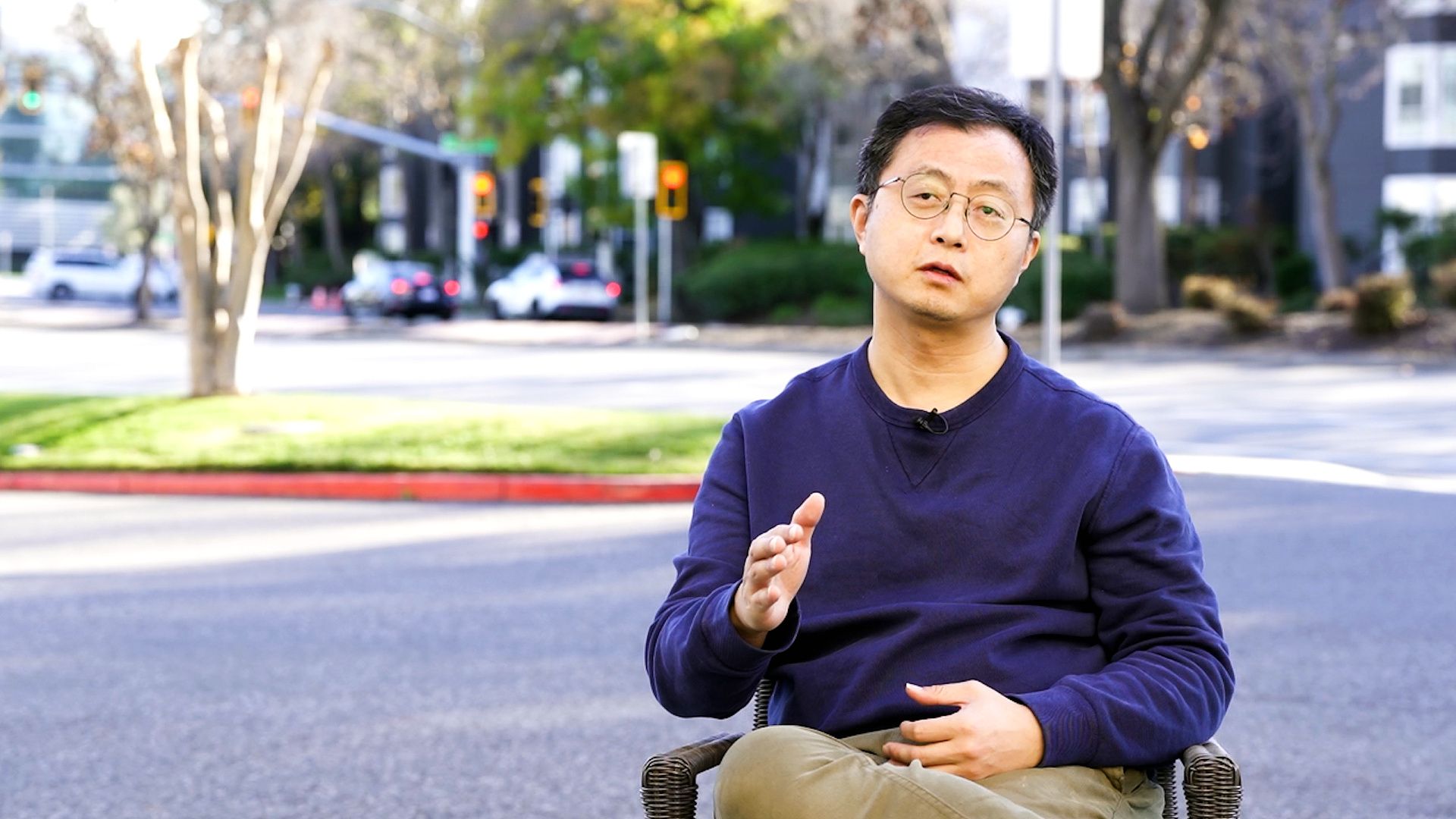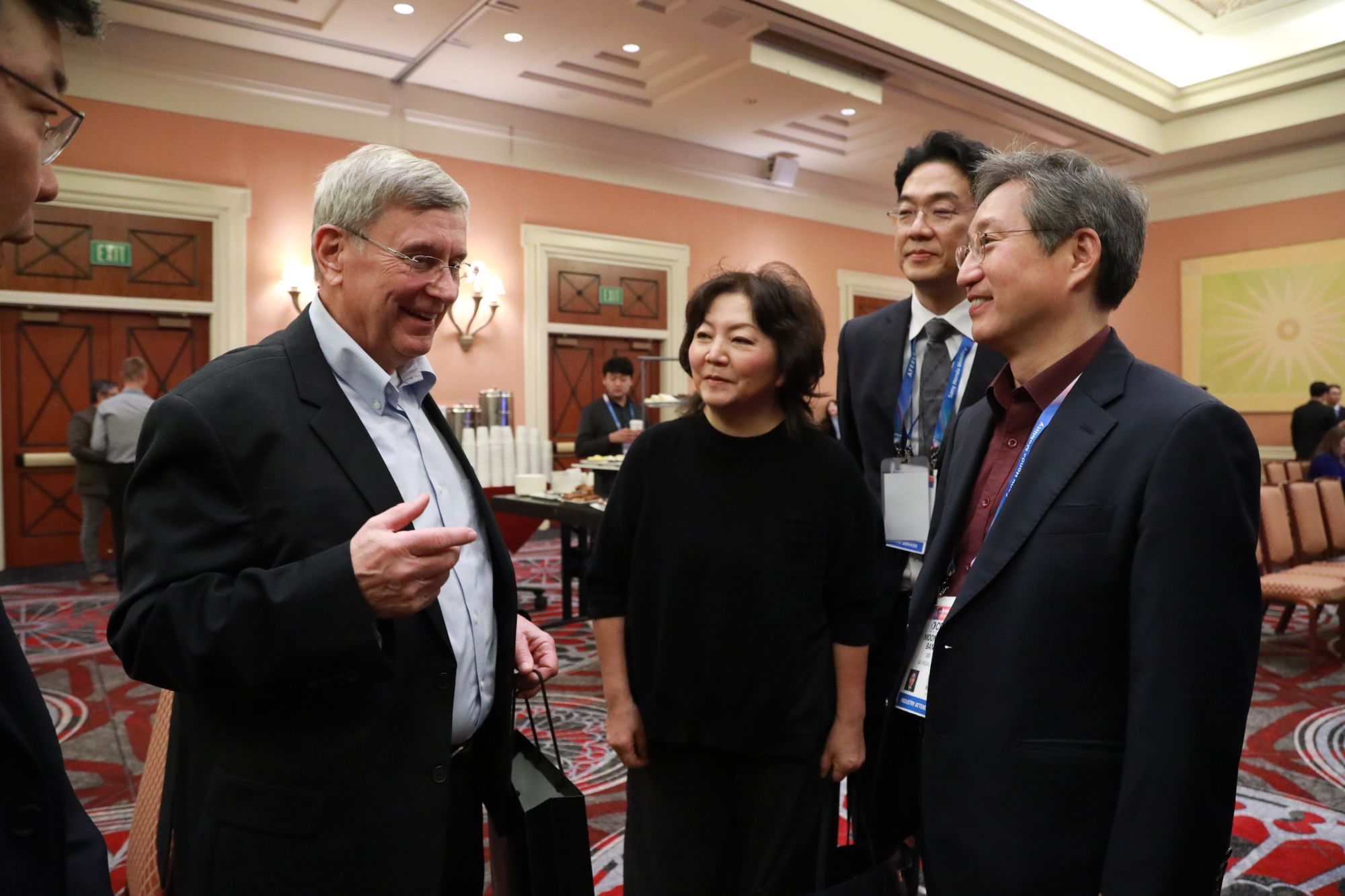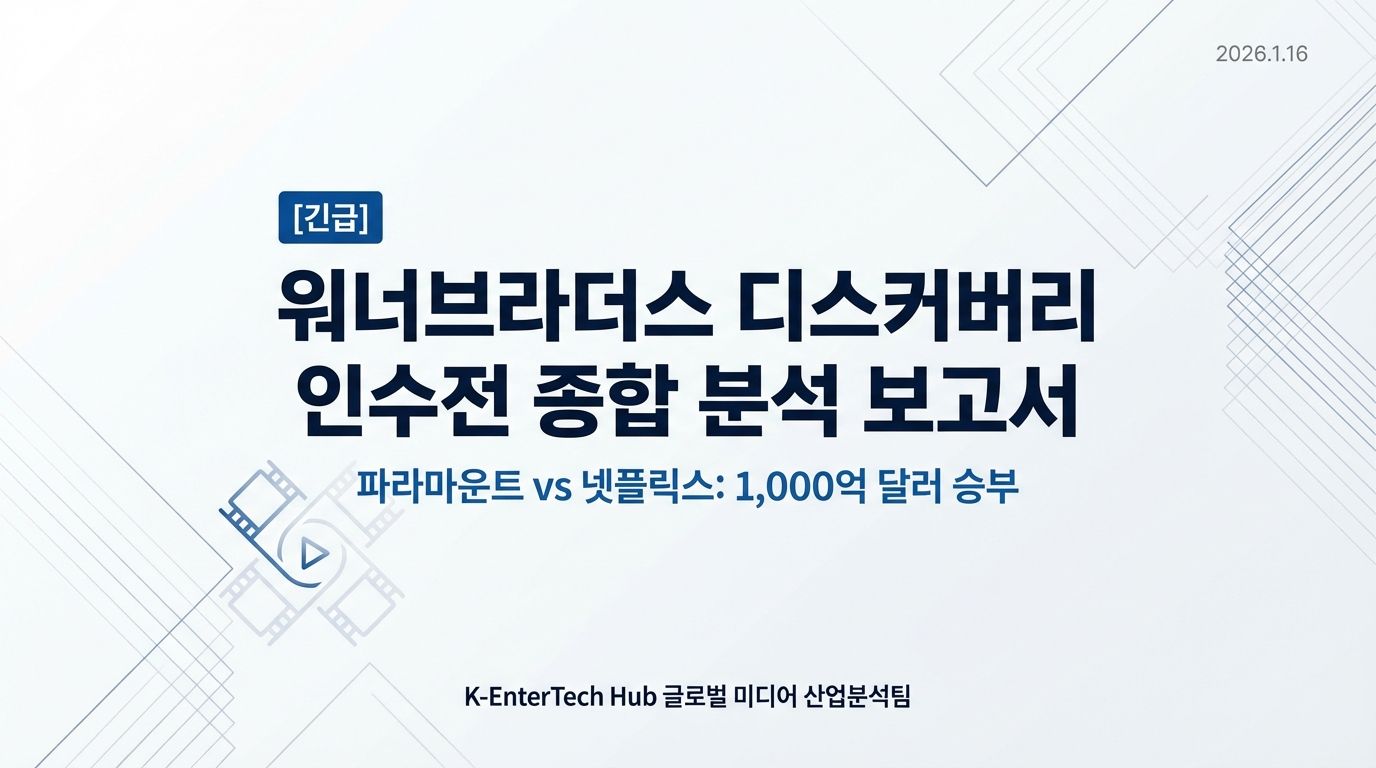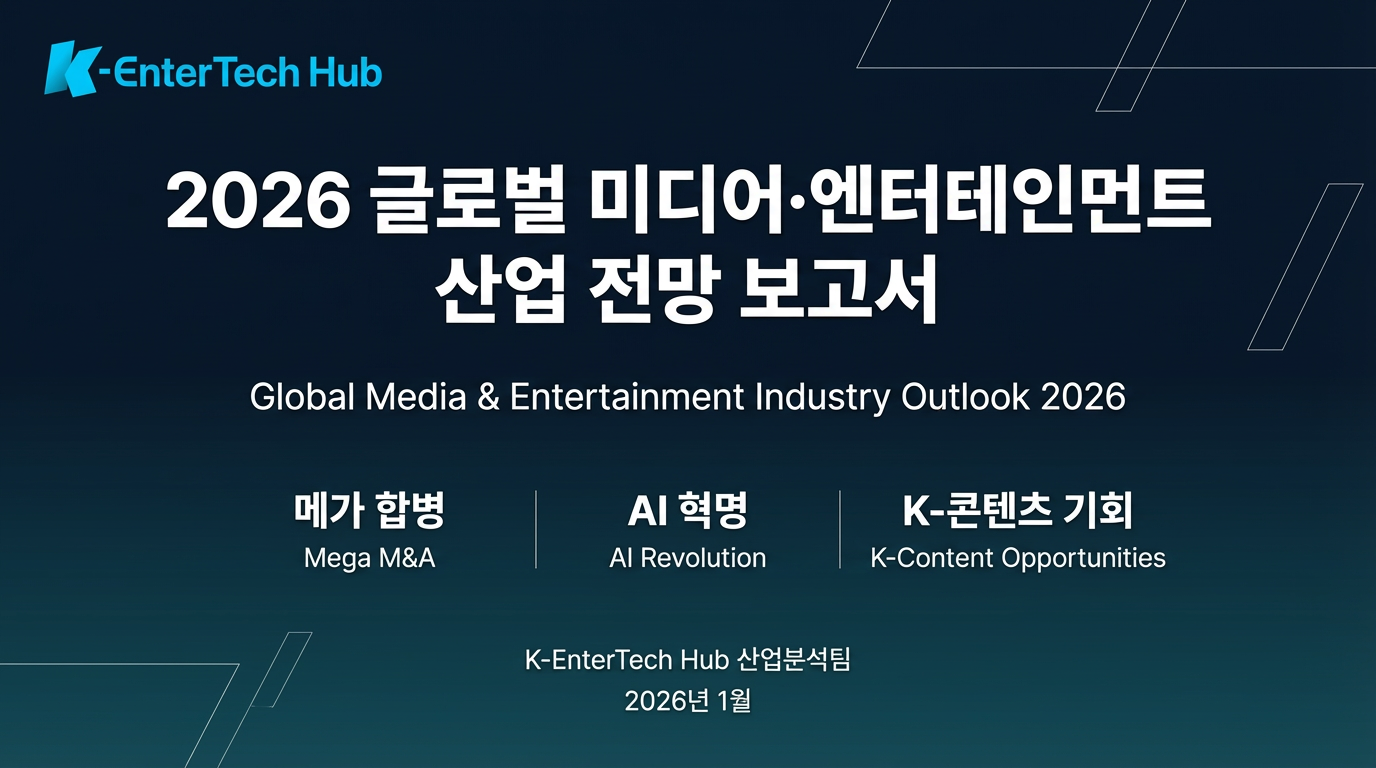앤트로픽 대표 “AI 툴, 비즈니스를 위한 ‘포스 멀티플라이어’ 될 것(Anthropic Chief Says AI Tools Can Be a ‘Force Multiplier’ for Busines)
미국 실리콘밸리에서 가장 주목받는 AI 스타트업 중 하나인 ‘앤트로픽(Anthropic)’의 공동 창업자 겸 사장 다니엘라 아모데이(Daniela Amodei)가 최근 열린 ‘캔바 크리에이트(Canva Create)’ 행사에서 “AI 기술이 앞으로 기업의 생산성을 폭발적으로 끌어올릴 ‘포스 멀티플라이어(force multiplier)’가 될 것”이라고 강조했다.
1980~90년대 미국 경제를 가속한 컴퓨터 및 인터넷 활용이 기업에 큰 변화를 가져왔듯, 현재의 생성형 AI 기술이 또 한 번의 산업·사회적 변혁을 이끌 것이라는 전망이다.
아모데이는 이 자리에서 AI 기술이 전 세계적으로 공평하게 확산될 필요성을 거듭 언급하며, 보다 ‘윤리적이고 안전한’ AI 모델을 설계·보급해야 한다고 역설했다. 앤트로픽은 이미 대기업 고객뿐 아니라 다양한 사용자군과 협력하며, 각 산업마다 필요로 하는 세부 사항을 충족할 수 있도록 AI 모델에 보안·법률·윤리적 파라미터를 내장하고 있다.
“전 세계 어디에 있든, AI 기술을 활용할 수 있는 기회를 갖지 않으면 특정 지역에만 기술 혁신이 집중될 것이라는 우려가 크다”며, “누구나 AI 혜택을 받을 수 있도록 제도적인 장치와 적극적인 노력이 필요하다”고 아모데이는 밝혔다.
이번 행사에는 디자인·시각화 플랫폼인 ‘캔바(Canva)’의 공동창업자 겸 CEO 멜라니 퍼킨스(Melanie Perkins)도 참석해, 캐주얼한 대담 형식으로 AI가 가져올 기술적·사회적 변화에 대해 이야기를 나눴다. 캔바는 2013년 창립 이래 이미 다양한 AI 기능을 부분적으로 접목해 왔는데, 이번에는 앤트로픽이 개발한 AI 기술과 협업해 ‘캔바 코드(Canva Code)’라는 신규 기능을 공개했다. 이를 통해 코딩 지식이 없어도 간단한 시각적 인터페이스를 통해 웹사이트나 디지털 제품을 개발·디자인할 수 있도록 지원한다.
아모데이는 “이처럼 AI 모델은 엄청난 양의 정보와 맥락을 빠르게 이해하고 학습할 수 있다는 점에서 학습·교육, 창의적인 작업, 일상생활 전반에 걸쳐 도움을 줄 것”이라며, 실제로 자녀의 ‘배변 훈련(‘potty training’)’ 문제도 AI 챗봇을 활용해 성공적으로 해결했다고 소개했다. 앤트로픽이 대표적으로 선보인 생성형 AI 에이전트 ‘클로드(Claude)’ 역시 짧은 시간 안에 이용자층이 크게 늘고 있으며, 회사 규모도 최근 1년 사이 직원 300명에서 1,000명 이상으로 급성장했다고 전했다.
특히 아모데이는 “AI가 새로운 일자리를 없애기보다 인간이 이미 수행 중인 업무나 창의적 프로세스를 ‘보조·증폭(Augmentation)’함으로써 사람이 더욱 가치 있는 분야에 집중할 수 있게 만드는 방식으로 진화하고 있다”며 긍정적인 전망을 내놓았다. AI를 통한 업무 자동화가 오히려 혁신의 속도를 높여 인재와 자원을 더 중요한 분야에 투입할 수 있게 만든다는 것이다.
앤트로픽이 공익 목적의 법인을 표방하며 2021년 설립된 것도 이 같은 믿음에서 비롯됐다. “우리는 ‘모두에게 이로운’ AI 기술을 안전하게 개발하는 데 목표를 두고 있다. 기업과 개인이 쉽게 활용하고, 그로 인해 창출되는 부가가치가 전 세계로 고르게 확산되는 미래를 지향한다.”고 아모데이는 설명했다.
멜라니 퍼킨스 역시 “AI를 통해 이전에는 엄두를 못 냈던 고도의 시제품 제작이나 시각적 디자인이 한층 쉬워지고 있다”며, “캔바 전체의 제품 개발 과정 역시 AI 덕분에 완전히 새로운 방식으로 변했다”고 덧붙였다.
[한국 시장에 주는 메시지]
생산성 혁신과 기업 경쟁력 강화
AI 기술이 1980~90년대의 PC·인터넷 보급과 유사하게, 기업의 업무 효율성을 높이고 새로운 비즈니스 기회를 창출할 수 있음이 강조됐다. 한국에서도 대기업부터 스타트업까지 다양한 업계가 AI를 적용한다면, 글로벌 시장 경쟁력을 더욱 강화하는 데 도움이 될 것으로 전망된다.
‘윤리·보안’ 내재화의 중요성
앤트로픽은 윤리와 보안을 개발 초기부터 모델에 심어두는 방식으로 접근하고 있다. 한국에서도 AI 활용이 확산될수록 개인정보보호, 알고리즘 윤리성, 저작권 분쟁 등 다양한 문제가 대두될 수 있어, 이러한 ‘내재화된 보안·윤리 프레임워크’ 설계가 필수적인 과제가 될 것이다.
전 세계적 접근성 확대와 포용성
아모데이가 언급한 ‘지리적 불균등 해소’의 가치는 한국 사회에도 시사점이 크다. 지역별 정보 격차 및 교육 기회 격차를 줄이고, 중소기업이나 개인 창작자들도 쉽게 AI를 접할 수 있도록 디지털 인프라 및 제도 개선이 필요하다.
일자리 파괴보다는 ‘증폭(Augmentation)’
AI가 인간의 일을 빼앗는 존재가 아니라, 사람들이 더 창의적이고 복잡도 높은 업무로 역량을 집중할 수 있도록 돕는 보조적 파트너라는 관점은 한국 사회가 마주하고 있는 고용 안정성 이슈와도 직결된다. 정부·기업·교육기관이 AI 리터러시 교육, 재교육(Re-skilling) 프로그램 등을 확충한다면, AI와의 공존을 통해 노동시장을 재편하고 발전시킬 가능성이 있다.
개인의 삶과 교육 분야에서의 활용성
AI가 단순 업무뿐 아니라 일상적 문제 해결(예: 자녀 육아, 건강관리, 학습 가이드) 등에 도움을 준다는 예시는, 한국 내 개인 사용자들이 AI를 더욱 적극적으로 받아들일 수 있는 동인을 제공한다. 특히 교육·육아 현장에서 맞춤형 학습 코치, 대화형 가이드로 쓰일 수 있는 잠재력이 높아 주목할 만하다.
결론적으로, 이번 캔바 크리에이트 행사에서 강조된 앤트로픽의 메시지는 한국에도 중요한 시사점을 던진다. AI 기술이 단순한 자동화 수단을 넘어 윤리·보안·포용성을 갖춘 ‘프레임워크’로 발전한다면, 국내 기업과 인재에게 폭넓은 기회를 열어주는 동시에 글로벌 경쟁력을 한층 강화할 수 있을 것으로 보인다.
One of Silicon Valley’s most closely watched AI startups, Anthropic, had co-founder and president Daniela Amodei deliver a keynote at the recent “Canva Create” event, emphasizing that AI will become a “force multiplier” for businesses. Just as computers and the internet sparked major economic growth in the United States during the 1980s and ’90s, today’s generative AI is expected to herald another wave of industrial and social transformation.
Amodei also underscored the importance of ensuring that AI technology is developed and made available in an “ethical and secure” manner, so that its benefits reach as many people as possible around the globe. Anthropic has been working with a wide range of clients, from large enterprises to smaller entities, tailoring its AI models to meet the unique demands of each industry. This includes building in security, legal, and ethical parameters from the outset.
“Without active efforts, we worry that AI will be concentrated in the same places that have historically enjoyed the lion’s share of tech breakthroughs,” Amodei said. “We’re thinking very critically about how we can ensure that access to this technology is truly available to people everywhere.”
The Canva Create: Uncharted event, held at SoFi Stadium, brought together thousands of fans of the fast-growing design platform. Participants enjoyed panels, keynotes, product demos, and networking in the stadium’s spacious plaza areas. AI’s rapid emergence in technology, business, and culture was a central focus, with Canva showcasing how it has integrated AI since its founding by Melanie Perkins (CEO), Cliff Obrecht (COO), and Cameron Adams (CPO) in 2013.
In a fireside chat-style discussion, Amodei and Perkins explored various use cases for AI tools—from personal tasks to large-scale corporate projects. Anthropic’s most prominent product, the AI agent Claude, highlights the vast potential of an AI companion that can learn a user’s unique preferences and habits over many years.
“These models can process huge amounts of context and information,” Amodei said. “You could have a lifelong, personalized tutor—a partner that knows and understands you, one that has seen you grow from a very young age.”
From personal experience, Amodei shared how Claude “was really helpful in potty training my toddler.” The user base for Claude, she noted, is “growing like crazy,” and Anthropic itself has expanded from 300 employees to 1,000 over the past year.
Because Anthropic frequently works with enterprise clients who have specific goals, the startup pays special attention to embedding security, legal, and ethical safeguards into its models to help businesses avoid future pitfalls. Anthropic collaborated with Canva on a new product—Canva Code—which was unveiled at Canva Create. This feature provides a user-friendly, visual interface so people can build websites and other digital products with minimal coding expertise.
“We spend a lot of time talking with customers about the features that will make AI more powerful and transformative for their businesses,” Amodei explained.
Anthropic was founded in 2021 as a public benefit corporation, reflecting the conviction that “we can develop transformative AI technologies in a way that is good, safe, and beneficial for everyone,” according to Amodei.
From Amodei’s point of view, AI should be a boon to humanity—empowering rather than threatening. She believes that AI, especially in creative fields, will help employees become more productive and strategic.
“For businesses, most AI use cases are augmentative,” Amodei said. “AI assists humans in tasks they’re already doing—particularly in creative work. It acts as an incredible force multiplier that helps people think, ‘What do I really want to create and build?’”
[Analysis and Message for the Korean Market]
Productivity Innovation and Corporate Competitiveness
Amodei’s emphasis on AI technology as a force multiplier echoes the impact of personal computers and the internet in the ’80s and ’90s. Korean companies—from conglomerates to startups—can leverage AI to boost efficiency and discover new business opportunities, ultimately strengthening global competitiveness.
Importance of Embedding Ethics and Security
Anthropic integrates ethical and security frameworks directly into its AI models from the outset. As AI adoption in Korea continues, concerns around data privacy, algorithmic fairness, and copyright disputes will only grow. Building robust ethical and security safeguards into AI solutions is therefore crucial.
Global Accessibility and Inclusivity
Amodei’s call for making AI technology accessible to people worldwide resonates with Korea’s efforts to close digital divides. Ensuring that AI education, infrastructure, and institutional support reach smaller businesses and creators nationwide can help democratize the benefits of AI.
Augmentation Rather Than Job Replacement
Amodei’s perspective that AI augments human roles instead of replacing them directly addresses concerns about employment in Korea. Upskilling, retraining, and expanding AI literacy through government, corporate, and educational programs will be critical to ensuring a smooth transition into an AI-driven future.
Applications in Daily Life and Education
AI’s ability to assist with everyday needs—such as childcare and personalized learning—makes it more appealing and accessible. In Korea, AI-powered tutoring, language practice, and creative tools could greatly enhance both formal and lifelong education.
Overall, the key takeaway from Anthropic’s and Canva’s collaboration is the vision for AI that is safe, ethical, and widely accessible. For Korean enterprises and professionals, embracing AI not merely as a tool but as a comprehensive framework—with built-in safeguards and inclusive features—can open up extensive new opportunities while bolstering global competitiveness.



![[CES 2026]로쿠(Roku), AI·저가 스트리밍·광고 '3대 전략'으로](https://cdn.media.bluedot.so/bluedot.kentertechhub/2026/01/2ug8x9_202601150040.jpeg)
![[CES2026]생성 AI, '있으면 좋은 것'에서 '필수 인프라'로”](https://cdn.media.bluedot.so/bluedot.kentertechhub/2025/12/7dbmg3_202512271017.jpeg)


![[CES 2026] AI, 스트리밍 전쟁, 마이크로드라마](https://cdn.media.bluedot.so/bluedot.kentertechhub/2026/01/nf0b2a_202601210349.png)

![[CES 2026] 크리에이터 이코노미 보고서(무료 요약본)](https://cdn.media.bluedot.so/bluedot.kentertechhub/2026/01/5wiefh_202601190237.png)
![[CES 2026]크리에이터 이코노미 종합 분석 리포트](https://cdn.media.bluedot.so/bluedot.kentertechhub/2026/01/d48ydy_202601190208.jpeg)


![[2026엔터테크] 윤리적 AI 스튜디오 종합 보고서](https://cdn.media.bluedot.so/bluedot.kentertechhub/2026/01/ylqs2w_202601040723.png)
![[심층분석] 디즈니-OpenAI 10억 달러 딜이
K-콘텐츠 산업에 던지는 시사점](https://cdn.media.bluedot.so/bluedot.kentertechhub/2025/12/qz7dim_202512301210.jpeg)
